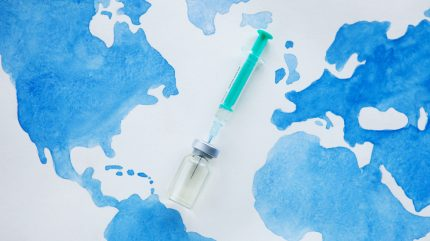“Profound concern” over WHO’s pandemic agreement, says AIDS charity
May 4, 2024
Source: https://www.pharmaceutical-technology.com/news/profound-concern-over-whos-pandemic-agreement-says-aids-charity/?cf-view
 382
382

The AHF Global Public Health Institute has voiced concerns over the World Health Organization’s (WHO) proposed pandemic agreement, saying that the private interest of pharmaceutical companies has taken priority over global health security.
The AHF Global Public Health Institute, a joint initiative of the AIDS Healthcare Foundation and the University of Miami, outlined issues in the latest iteration of the text from the WHO via a 26 April press release.
The Pandemic Agreement, also known as the pandemic accord, is a proposed international joint initiative to fight the next pathogen that threatens global health. The framework is meant to implement lessons learned from the response to Covid-19 to improve shared response between nations. Member states have a deadline of May 2024 to join the treaty accord.
Research indicates that Covid-19 would have caused 40 million more deaths in the absence of preventative measures.
Countries have been debating the terms of the agreement for two years, with the final Intergovernmental Negotiating Body (INB) meeting of the WHO, which began today and will conclude on 10 May.
Though many governments have publicly declared support, there have been stark differences in position on the treaty between developed and developing countries. Much of this centres around intellectual property measures included in the texts.
The AHF Global Public Health Institute said in its statement that “equity will not be operationalised without effective mechanisms for accountability and enforcement”.
The health policy institute added that the lack of independent oversight means that the agreement repeats the same mistakes that compromised global health security in the past – namely relying on state self-reporting mechanisms. The non-profit says these do not work and called for an independent oversight body.
The organisation also remarked that the voices of civil society remain marginalised in the proposal: “We also highlight that the current text misses the opportunity to effectively engage civil society and other non-government actors.”
At the World Economic Forum (WEF), WHO Director-General Dr Tedros Adhanom Ghebreyesus called for more countries to sign up to the agreement: “Narrow national interest should not come in the way” of fighting the next big public health threat, the WHO chief said at the time.
The need for a reformed public health response after Covid-19 is clear – vaccine inequity during the last pandemic was widespread. During the first seven months of the Covid-19 vaccination campaign, more than 80% of the doses were concentrated in high and upper-middle-income countries.
Ghebreyesus has previously called out critics of the pandemic accord and highlighted the role of “vested interests” in driving this disapproval.
The international non-profit Human Rights Watch has already called upon the member states to push for commitments to protect core human rights in the agreement. The proposed agreements have also been called fissures within member states. There is a clear divide in the US, for example, where the opposition Republican party has been openly against the proposal.
By editor
Read more on
- Gusekirumab Injection Accepted by CDE, Multiple Pipelines Advancing Simultaneously March 4, 2026
- Yifan Pharmaceutical’s teriparatide injection has been accepted by the CDE (Center for Drug Evaluation), adding a new domestic player to the osteoporosis treatment field March 4, 2026
- //news.yaozh.com/archive/47318.html PD-1 sales surge March 4, 2026
- A major breakthrough! Roche’s oral BTK inhibitor achieves its third Phase III clinical trial victory, a game-changer in the multi-billion dollar MS (manufactured pharmaceuticals) market. March 4, 2026
- GB19 Injection Approved for Clinical Trials of Cutaneous Lupus Erythematosus March 4, 2026
your submission has already been received.
OK
Subscribe
Please enter a valid Email address!
Submit
The most relevant industry news & insight will be sent to you every two weeks.



